Maintaining cast iron grates is essential for ensuring their longevity and performance. These robust cooking tools, known for their excellent heat retention and distribution, require regular care to prevent rust and to keep them in top condition. Whether used on a grill or stove, properly treating cast iron grates involves cleaning, seasoning, and storage techniques that protect the material and enhance its cooking capabilities. In this guide, we will explore how to treat cast iron grates, ensuring they remain a reliable part of your culinary adventures for years to come.
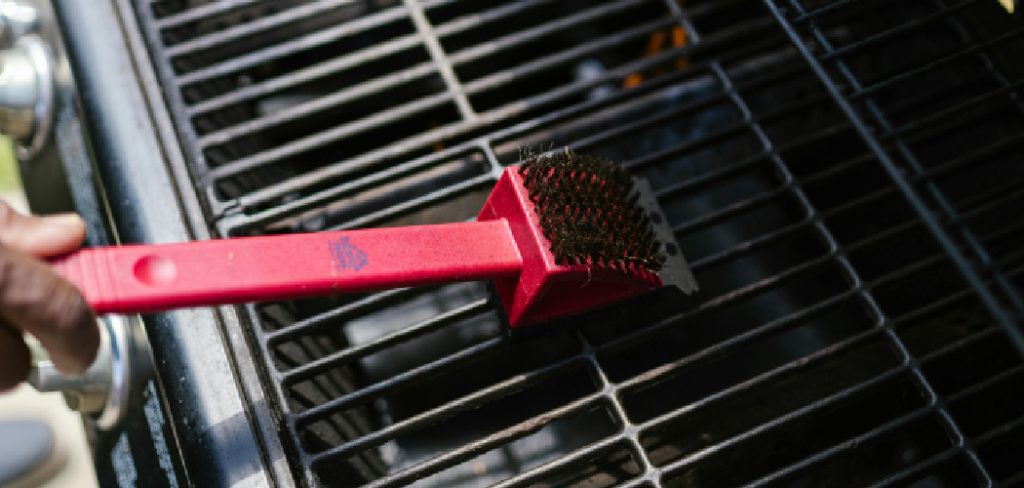
Importance of Treating Cast Iron Grates
Treating cast iron grates is crucial not only for maintaining their durability but also for achieving optimal cooking results. Proper treatment protects the grates from rust and corrosion, which can compromise their structural integrity and effectiveness. Without adequate care, cast iron is susceptible to moisture damage, leading to flaking and reduced heat conduction. Moreover, seasoning the grates ensures a naturally non-stick surface, enhancing the cooking experience by preventing food from sticking and making cleanup easier. By investing time in treating cast iron grates, you ensure that they remain an indispensable part of your kitchen for many deliciously memorable meals.
Common Issues with Cast Iron Grates
Despite their durability, cast iron grates can encounter several issues if not properly maintained. One common problem is rusting, which occurs when the grates are exposed to moisture without being adequately dried or seasoned. This rust not only affects the appearance of the grates but can also lead to pitting, which diminishes the cooking surface’s effectiveness.
Another issue is food sticking to the grates, often resulting from insufficient seasoning or improper cleaning methods. Over time, accumulation of burnt-on residues can affect heat distribution and create unpleasant odors during cooking. Additionally, thermal shock—caused by extreme temperature changes—can lead to cracking or warping, compromising the grate’s structural integrity. Addressing these issues promptly ensures that cast iron grates remain functional and enhances their contribution to cooking endeavors.
Tools and Materials Needed
To properly care for and maintain cast iron grates, it’s essential to have the right tools and materials on hand. Here is a list of what you’ll need:
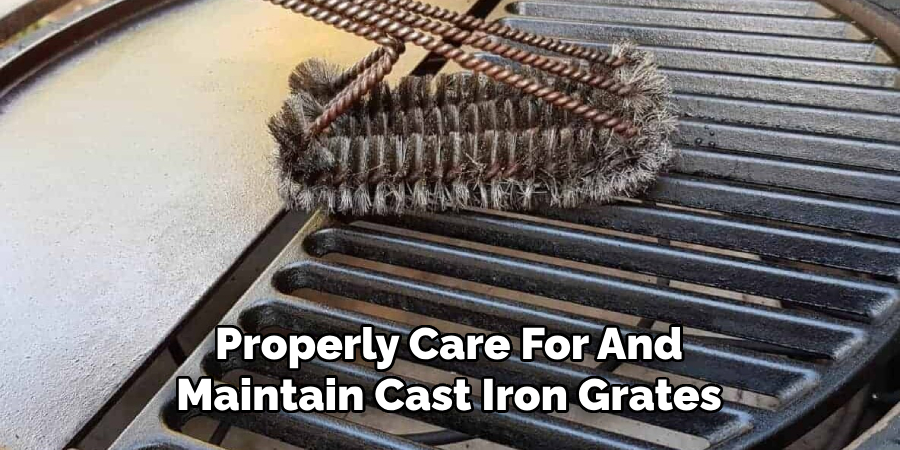
- Stiff-Bristled Brush or Wire Brush: Useful for scrubbing away food particles and rust without damaging the iron surface.
- Mild Dish Soap: Helps in cleaning the grates gently without stripping away the seasoning.
- Warm Water: Essential for washing and rinsing the grates.
- Clean, Dry Cloths or Paper Towels: Used for thoroughly drying the grates to prevent rust.
- High-Smoke Point Oils: Oils such as vegetable oil or flaxseed oil are ideal for seasoning the grates.
- Baking Soda (Optional): Can be used as a mild abrasive cleaner to tackle stubborn residues.
- Plastic Scraper: For removing stuck-on food without scratching the surface.
- Oven or Grill: Needed for heating the grates during the seasoning process.
Having these tools and materials readily available makes treating and maintaining your cast iron grates more efficient and effective.
10 Methods How to Treat Cast Iron Grates
1. Clean the Grates Thoroughly Before Treatment
The first step in treating cast iron grates is to clean them thoroughly. Use a stiff wire brush or grill brush to remove food particles, grease, and carbon buildup. For stubborn grime, soak the grates in warm soapy water for 30 minutes, then scrub with a non-abrasive sponge. Rinse them well and dry completely. Proper cleaning ensures that the grates are ready for treatment and allows any protective coatings to adhere effectively.
2. Remove Rust with a Wire Brush or Sandpaper
Rust is a common issue with cast iron grates, especially if they’ve been exposed to moisture. Use a wire brush or medium-grit sandpaper to scrub away any rust spots. For severe rust, a steel wool pad can be effective. Be sure to work gently to avoid damaging the grates. Removing rust restores the surface and prepares the grates for seasoning or other treatments.
3. Wash with Mild Soap and Rinse Thoroughly
Once the rust is removed, wash the grates with a mild soap and warm water to eliminate any remaining debris or grease. Avoid harsh detergents, as they can strip the cast iron’s natural protective layer. Rinse the grates thoroughly to ensure no soap residue remains, as it can interfere with seasoning or cooking later. A clean surface is essential for optimal performance and longevity.
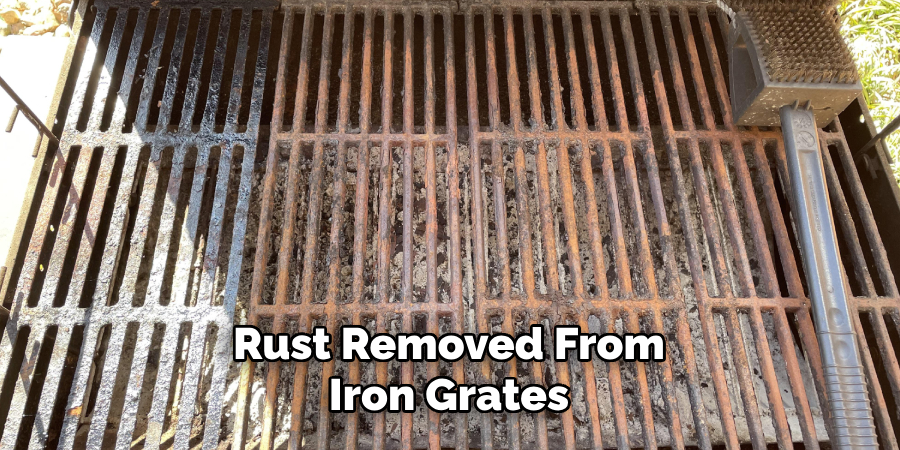
4. Dry Completely to Prevent Rust
After washing, dry the grates completely to prevent rust. Use a clean towel to wipe them down, then place them in a warm oven or on a heated grill for a few minutes to evaporate any remaining moisture. Moisture is the leading cause of rust in cast iron, so ensuring they are completely dry is a critical step in the treatment process.
5. Apply a Thin Coat of Oil
Seasoning is a key part of treating cast iron grates, and it begins with applying a thin layer of oil. Use a high-smoke-point oil, such as vegetable oil, canola oil, or flaxseed oil. Apply the oil to the grates using a paper towel or cloth, ensuring even coverage over all surfaces, including corners and edges. A thin coat of oil protects the grates from rust and helps create a non-stick surface.
6. Heat the Grates to Season Them
After applying oil, heat the grates to bond the oil to the surface, a process known as seasoning. Place the grates in a preheated oven at 375°F (190°C) or on a grill set to medium heat for about 60 minutes. This high heat polymerizes the oil, creating a durable, non-stick coating. Allow the grates to cool slowly after heating. Proper seasoning enhances the grates’ cooking performance and protects them from corrosion.
7. Store in a Dry Location
Proper storage is essential to maintaining cast iron grates. Store them in a dry location to prevent moisture buildup and rust. If possible, keep the grates in a covered grill or place them in a cabinet with adequate ventilation. For extra protection, consider wrapping the grates in a clean cloth or towel to absorb any ambient moisture. Proper storage ensures the grates remain in excellent condition between uses.
8. Reapply Oil Periodically
Regular maintenance is crucial for the longevity of cast iron grates. Reapply a thin coat of oil after each use, especially if you notice the seasoning wearing off or rust forming. Lightly oiling the grates while they’re still warm after cleaning can help reinforce the protective layer. Periodic oiling keeps the grates well-seasoned and ready for cooking.
9. Avoid Harsh Chemicals or Abrasives
When treating cast iron grates, avoid using harsh chemicals or abrasive cleaners that can strip away the seasoning or damage the surface. Instead, stick to mild soaps and non-abrasive scrubbing tools. If deeper cleaning is necessary, use natural options like baking soda or vinegar to gently remove stubborn residue. Gentle cleaning methods preserve the integrity of the grates and their protective coating.
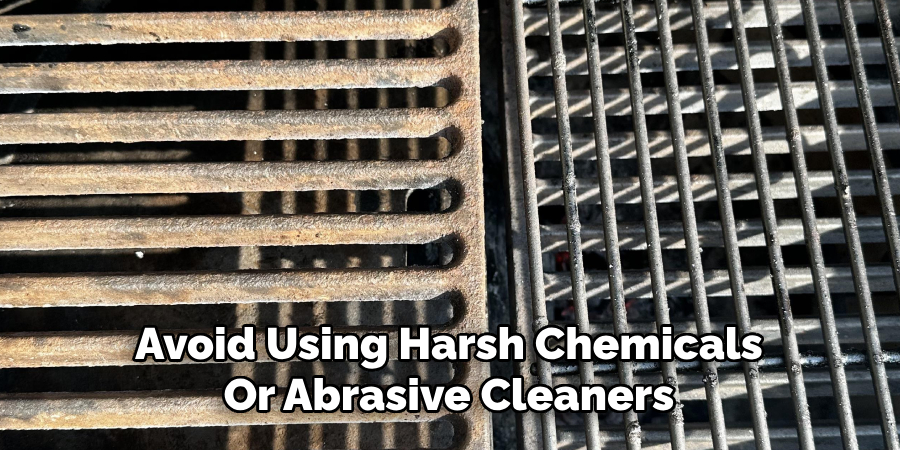
10. Inspect and Maintain Regularly
Regular inspection and maintenance are essential for ensuring the longevity of cast iron grates. Check for signs of rust, wear, or damage before and after each use. If you notice any issues, address them promptly by cleaning, re-seasoning, or repairing as needed. Consistent care ensures that your cast iron grates perform well and remain in top condition for years to come.
Things to Consider When Treating Cast Iron Grates
When treating cast iron grates, it’s important to consider a few key factors to ensure their longevity and effectiveness. First, always handle grates gently to avoid chipping or damaging the surface, as cast iron can be brittle. Consider the environment where the grates will be stored; humidity and moisture can lead to rust, so a dry setting is crucial. Additionally, pay attention to the type of oil used for seasoning. High-smoke-point oils are best to prevent smoking and ensure a durable non-stick finish.
Common Mistakes to Avoid
- Using Soap After Seasoning: Once the cast iron grates have been seasoned, avoid using soap, as it can strip away the protective layer. Instead, use hot water and a non-abrasive sponge to clean them after cooking.
- Neglecting Regular Maintenance: Skipping regular maintenance, like reapplying oil and inspecting the grates for rust, can lead to deterioration over time. Consistent care is crucial to preserve the seasoning and prevent rust from forming.
- Storing in a Humid Environment: Always store cast iron grates in a dry location. High humidity can cause rust to develop quickly, so it’s essential to ensure the storage area is moisture-free.
- Using Metal Utensils: Avoid using metal tools or utensils on cast iron grates as they can scratch the surface and damage the seasoning. Opt for wooden or silicone utensils to prevent damage.
- Exposing to Extreme Temperature Changes: Rapid changes in temperature can cause cast iron to warp. Allow grates to cool gradually after heating, and avoid transferring them from hot to cold environments swiftly.
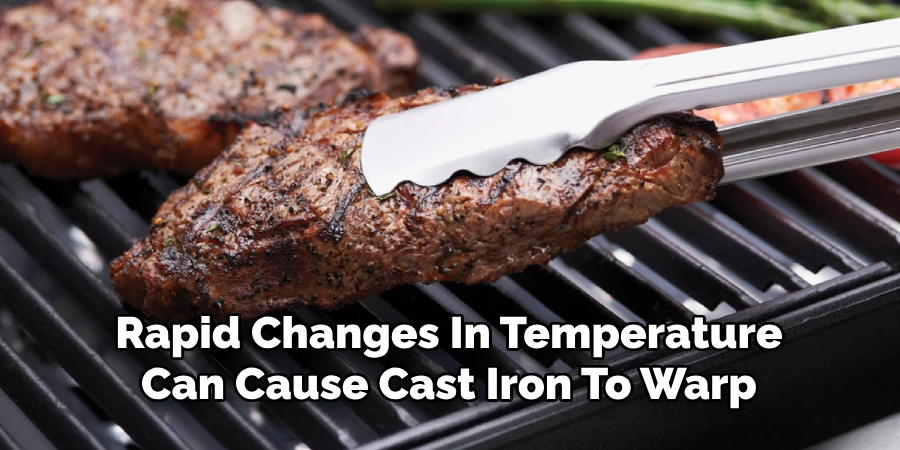
Conclusion
Proper care and maintenance of cast iron grates are integral to ensuring their durability and performance. By following the guidelines outlined, such as regular seasoning, appropriate cleaning methods, and mindful storage, you can extend the lifespan of your cast iron grates and enhance their cooking effectiveness. Avoiding common mistakes like using soap on seasoned grates or storing them in humid environments can prevent unnecessary damage. Thanks for reading, and we hope this has given you some inspiration on how to treat cast iron grates!
you can also check it out Clean a Cast Iron Grill Pan
Edmund Sumlin is a skilled author for Metal Fixes, bringing 6 years of expertise in crafting a wide range of metal fixtures. With a strong background in metalwork, Edmund’s knowledge spans various types of fixtures, from decorative pieces to functional hardware, blending precision with creativity. His passion for metalworking and design has made him a trusted resource in the industry.
Professional Focus:
- Expert in Metal Fixtures : Edmund aesthetic specializes in creating durable and innovative metal fixtures, offering both appeal and functionality. His work reflects a deep understanding of metalworking techniques and materials.
- Sustainability Advocate : He is dedicated to using sustainable practices, ensuring that every fixture is crafted with eco-friendly methods while maintaining high-quality standards.
In his writing for Metal Fixes, Edmund provides valuable insights into the latest trends, techniques, and practical advice for those passionate about metal fixtures, whether they are professionals or DIY enthusiasts. His focus on combining artistry with engineering helps others discover the true potential of metal in design.


